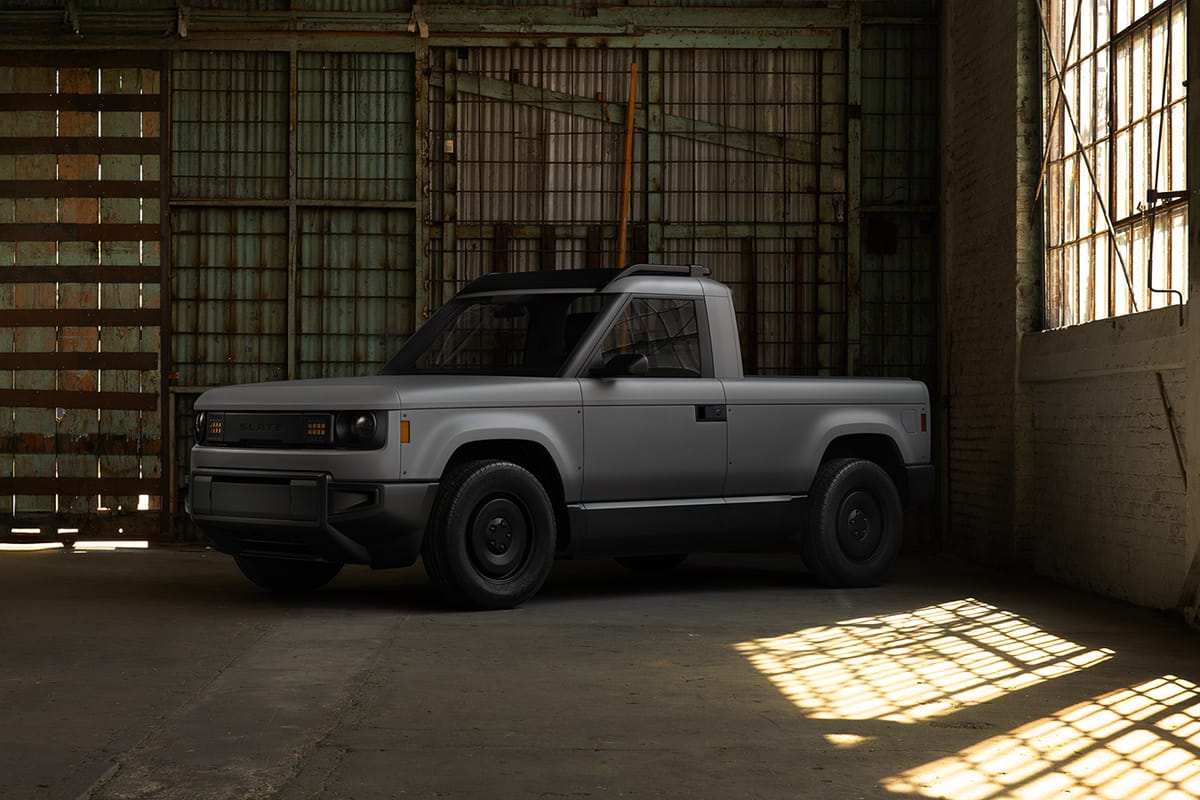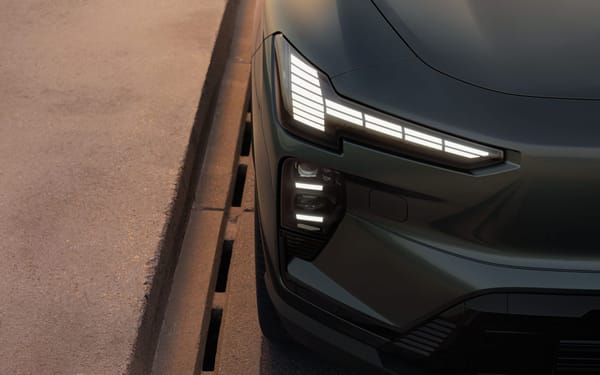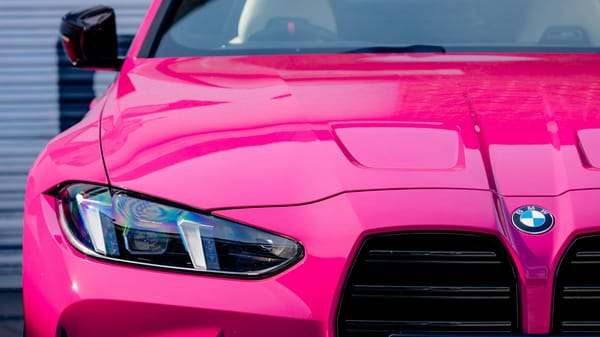Slate is all marketing, I really hope it has substance too
Introducing your cheap, modular car by promoting putting crying babies on the roof is genius.

A couple of days before Slate revealed their bland and soullessly gray pickup truck, it took to the streets of California with a powerhouse of a viral marketing campaign. It parked the most fun looking cars for the most ridiculously over the top and colorful businesses on the side of the road and waited.
It took off. Social media, and conventional media for that matter, couldn't get enough of the fun little cars. But at that time almost nobody knew anything about Slate. Was it a car company? If so, what kind of car company? And the people with a bit more knowledge thought: what did Jeff Bezos, the billionaire who invested millions into Slate, know what we didn't?
Thanks for reading Nitch! Subscribe for free to receive new posts and support my work.
Not even the websites tied to the made up businesses gave us more information. Instead they gave visitors fun and elusive answers which, at least in my case, sparked even more interest in the company. Who dared to go to market like this? Who had the stones to take on the conventional and very conservative car industry with so much confidence?
The whole thing was a masterclass in how to disrupt a market that is being overrun with high end cars with high prices. Even before Slate launched it's grey shitbox, the company managed to make cars fun again. They made them less a status symbol or a luxury object and more a creative canvas.
But almost all of that flair wore off quite quickly when Slate presented what it actually was. I mean, a bland grey pickup with hand cranked windows can only evoke so much interest from consumers. Still, the base product was perceived pretty well because of the marketing that made clear what a Slate can be: almost anything you want. Slate is going all in on letting buyers start with a blank slate (get it) and go from there.

At that point the business should have kept coming up with clear and informational power moves, because the marketing had done the heavy lifting until that point. Sadly, the information about the business side of Slate is scarce. We don't know much more than that the fresh car company is planning to produce a bare bones electric pick up with hundreds of customization options in 2027.
The issue is that anyone can see it's going to be hard for Slate to be successful. The company states is will make almost no profit on every sold blank slate. It needs to make it's margins on the add-ons that can be bought. On paper, that is a nice and disruptive idea, but in reality it means very complex supply lines and a lot of different production facilities or suppliers. And that, historically, is where most starting car companies fail.
At the base Slate is doing what every other starting car company has done: keep it simple, stupid. I mean to say, produce only a base model with maybe a few options to start with. This simplicity helps optimize production and keeps costs down. Slate took that to an extreme by simplifying everything. In the base model there is no point, no sound system and the windows are operated by arm power. Yes, the good old hand crank is back. All in the name of optimization and cost saving.
But most buyers probably want a couple of options fitted to their Slate. It's where the fun is. That means more complexity. And Slate took that to an extreme too.
A color on the car? That will be a wrap, no paint. It safes Slate from building a painting facility and it gives the buyer the added benefit of easily changing color after a couple of years and not having to worry much about scratches. But even this complicates production and supply lines.

And the options go on and on. You can even buy them at a later time and install them yourself. That means you can add a couple of speakers, have them sent to your house and click them into place yourself, or let Slate do it. Tired of hand cranking the windows? You can fit electric windows yourself, or let the company, or a local certified expert do it for you for an extra cost. You could even change the car from a pickup to an SUV or a Coupé if you'd like.
I think you get where I'm going here. All that complexity comes with a lot of uncertainty. For every part, at least in the starting years of the company, it will be hard to predict how much will need to be produced or how many optional will be sold.
But maybe I'm over complicating the whole thing, and maybe this will be where mister Bezos will prove it's worth as an investor. He could, after all, not only be sinking money into Slate, but also giving access to the massive and well built up infrastructure Amazon has. Maybe the parts for Slates could even be delivered by the companies Rivians, you know, the other EV-company Bezos has invested in, which went so well.
I get I'm being a bit cynic here, and I don't want to be. I desperately want Slate to succeed. I want one, or maybe two. I like the way they are trying to disrupt the EV-market, which so very, very, very much needed to be disrupted too. I frankly hoped for it to happen sooner. Tesla had all the right cards in hand to be the company to do so, but Musk doesn't want to.
It's good to see a car company trying to change the way we look at cars and give the consumer back options when buying one so it can be a fun experience again. And while doing so, it's making cars personal and colorful extensions of their owners. Importantly, it does so without making consumers sell their liver on the black market to just get a special color on their vehicle.

But looking at history, the odds are kind of stacked against Slate. There are two things that need to be in place for a car company to succeed: deep pockets and scale. The first one might be there for Slate if Bezos keeps forking over wads of cash, the second one is still a very big question mark.
Starting a car brand is a notoriously expensive endeavor. Cars need to be designed, factories need to be built and operated and materials need to be sourced. That is before any money can be made of sales. And even when sales have started, they need to be subsidized before scale is reached and it begins to make financial sense to actually be building cars.
It's why car makers like Rivian and Lucid currently lose tens of thousands of dollars per every car they sell. It’s something even Tesla struggles with to this day with the declining sales happening now, Musks car company is technically losing money because the margins on every sold car have gotten so thin
Slate starts in the same way as other starting car companies, with just one model. But it’s going against the grain by starting at the cheap end. That means margins are going to be tight, even when a profit can be made. Even more worrying, revenue will be low. Slate is betting it all on the sale of optional stuff.
As you can see, Slate is skipping the shallow end of the pool and jumping straight into the deep end. Let's hope the company learned how to swim before it did so. Or that they have enough flotation devices at the ready to buy enough time to learn while actively trying not to drown.
Thanks for reading Nitch! Subscribe for free to receive new posts and support my work.





